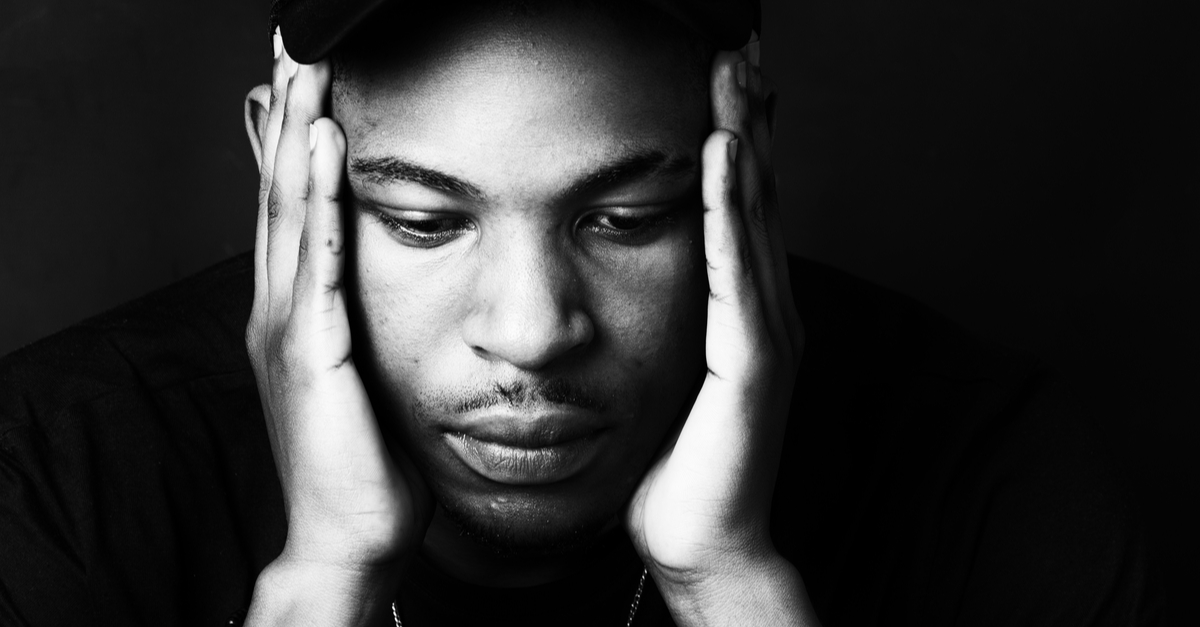What Are the Indicators of Depression in Men?
 Robert Weiss PhD, LCSW
Robert Weiss PhD, LCSW
Sadly, males are taught from an early age to not need others, to take care of themselves, and most of all to never let anyone know when they’re hurting. This is a message that leads to a whole lot of emotional repression in men. We can smile. We can be angry. And that’s it.
This does not, however, mean that men do not experience the full range of feelings, or that we do not suffer from emotional disorders like depression. What it does mean is that depression in men can be difficult to uncover and diagnose. Often, depressed men exhibit symptoms like impatience, irritability, and anger, rather than symptoms we typically associate with depression, such as crying, indecisiveness, and unchecked lethargy. Rather than ‘acting in’ by sleeping too much, overeating, and failing to fully function, depressed men tend to ‘act out’ with unpleasant behaviors. This means men dealing with depression sometimes look like jerks rather than people who are struggling to make it through the day.
Sure, plenty of men do manifest depression with tears, fears, and an inability to function. But just as many (and probably more) do not. In such cases, symptoms and behaviors to look for that may be indicative of ‘hidden’ male depression include:
- Loss of interest in previously enjoyable relationships and activities.
- Social and emotional isolation.
- Sudden bursts of anger or rage.
- Ongoing irritability or agitation.
- Unexplained physical pain or physical malaise.
- Unexplained mood swings.
- Increased use of alcohol, drugs, or an addictive behavior like video gaming, porn, or gambling.
- Blaming others for personal problems.
These symptoms are in addition to more obvious signs of depression, such as:
- An inexplicably negative or hopeless outlook.
- Sleeping too much or too little.
- Eating poorly.
- Poor self-care.
- Overt expressions of shame and worthlessness.
- Talking about death or suicide (even in passing).
- Feeling like a burden.
- Feeling trapped.
Depressed men can be deeply in denial about their problem and the negative impact it’s having on them and the people around them. And when they acknowledge their feelings of depression, they may feel shame about it, as if they’re unable to ‘man up’ like everyone else they know. Because of this, intervening with male depression can be difficult and should be undertaken with caution. That said, if you do see signs of depression in someone you care about, you must speak up. However difficult the task is, you need to start a conversation. Otherwise, the depression will continue and it may get worse.
Generally, the best way to go about this is to rely on the addiction intervention model where you start by telling the person that you love him and care about him and you’re worried for his safety and wellbeing. Then you can say you think he may be suffering from depression, listing the signs of depression that you’ve him exhibit. If you are worried that he might be suicidal, say so. And ask him directly, “Are you thinking about killing yourself?”
Whatever his response to your intervention, be willing to listen. No matter what, make sure he knows that you care about him and you want to help. Do not leave until you feel certain he is not a danger to himself or others. If you feel he is dangerous to himself or others, reach out for help immediately: Call 911 or take him to the nearest ER and ask for assistance.
If the individual is not an immediate danger to himself or others, you can educate him about treatments for depression, which generally include individual therapy, group therapy, medications, support groups for men with depression, and conscious efforts toward self-care (eating right, developing healthy sleep habits, getting regular exercise). You can also share the following resources:
- National Suicide Prevention Lifeline: This site offers a free, 24-hour suicide prevention hotline. 1.800.273.8255. This is a nationwide service. The website offers a wide variety of resources.
- Anxiety and Depression Association of America: This site offers facts about depression and its symptoms, plus information on finding treatment, getting support, and more.
- American Foundation for Suicide Prevention: This site provides information on finding support for people at risk of suicide.
- American Psychological Association: This site offers, among other things, the latest information about depression, anxiety, and related conditions.
- American Psychiatric Association: This is the professional organization for psychiatrists, with links to resources about mental health problems, information about medications, and more.
If you’re looking for a book about male depression, I highly recommend Terrence Real’s I Don’t Want to Talk About It: Overcoming the Secret Legacy of Male Depression.
* * * * * * * * * *
If you are wondering about and hoping to heal the issues that underlie and drive your addiction, we offer several online workgroups that may be helpful. First is our Healing Attachment Wounds workgroup, which begins April 24th. You can sign up HERE. Next is our Why Men Struggle to Love workgroup, which begins May 4th. You can sign up HERE.
